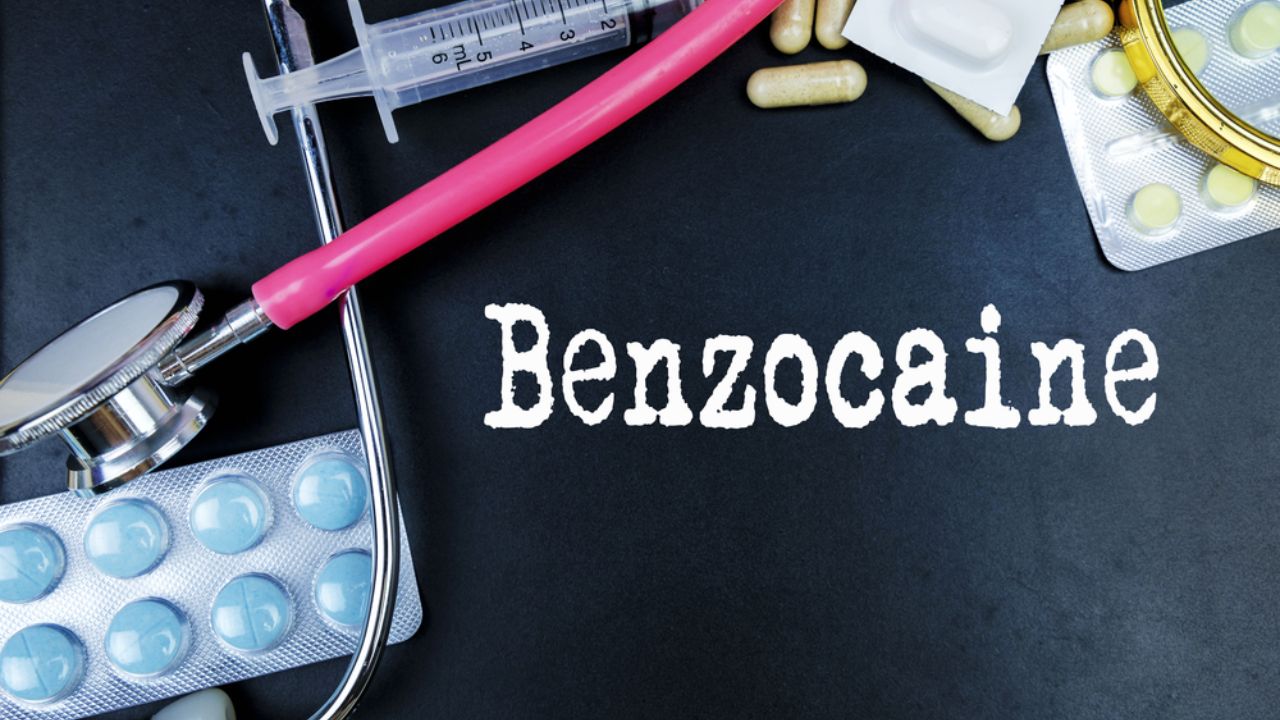Are you suffering from an excruciating toothache that just won’t go away? If so, benzocaine might be the solution for you. This powerful topical anesthetic has been used to treat pain caused by dental issues, including cavities, wisdom teeth, and more.
In this blog post, we’ll discuss how Benzocaine works and what it can do for your toothache so you can get the relief you need. So keep reading to learn more about this powerful anesthetic and its many benefits.
What is Benzocaine?
Benzocaine is an organic compound used as a topical pain reliever or anesthetic. It works by numbing the affected area and blocking the sensations of pain for a period of time.
Benzocaine can be found in many over-the-counter creams, gels, and sprays that treat minor skin irritations, sunburns, sore throats, and other minor discomforts. It is also used as a local anesthetic for minor surgical procedures.
Types of Benzocaine Medications
There are several different types of benzocaine medications available. The most common forms include gels, liquids, and sprays.
- Gels: are typically applied directly to the affected area and will work quickly, within minutes.
- Liquids: Can be taken orally or topically depending on the type of medication you’re using.
- Sprays: Can also be used topically and will usually take a few minutes to begin working.
Benzocaine’s Mechanism of Action
It primarily works as a local anesthetic, which is brought about by blocking sodium channels. Benzocaine works by preventing the flow of ions into and out of cells in nerves. This ultimately decreases nerve conduction and leads to pain relief when applied topically or locally. It also helps reduce inflammation, itching, and redness associated with skin irritations.
Benefits of Benzocaine
Here are some benefits of benzocaine:
- Helps alleviate pain and discomfort associated with minor cuts, scrapes, burns, and insect bites.
- Can be used to soothe sore throats caused by colds or allergies.
- Helps reduce the swelling of canker sores.
- Provides short-term relief from itching due to urinary tract infections, vaginal yeast infections, sunburns, and poison ivy.
- Can be used to numb the area prior to minor medical procedures or injections.
- Topical benzocaine is safe and non-irritating.
Side Effects of Benzocaine
Here are some common benzocaine side effects you should look out for:
- Can cause skin irritation or an allergic reaction in some people.
- It can also lead to methemoglobinemia, a condition in which the amount of oxygen in the blood is reduced.
- In rare cases, using benzocaine products may cause anaphylaxis, a potentially life-threatening allergic reaction.
- It can also cause nausea, vomiting, and dizziness in some people.
The Link Between Benzocaine and Toothache
Many clinical studies have found that it can provide relief when applied directly to the gums and teeth and reduce sensitivity.
In addition to being used as an over-the-counter treatment for toothache relief, Benzocaine is also found in many dental products.
These include gels and solutions applied directly to the teeth and gums to help reduce sensitivity, inflammation, and temporary pain relief.
It can also be used in some toothpaste and mouthwashes to help reduce the discomfort of toothaches.
Can I take Benzocaine Gel and Tylenol for a Toothache?

Yes, you can take benzocaine gel and Tylenol for toothache. Benzocaine gel is a topical anesthetic to reduce pain, while Tylenol is an analgesic to manage it.
However, it is essential to consult your dentist before using any over-the-counter medications or home remedies. Your dentist can help you determine the best course of action to manage your pain. They may also recommend a stronger medication or other treatments if needed.
Additionally, ibuprofen may be an effective alternative for managing toothache and pain relief. It is important to take medications as directed and to speak with your doctor or pharmacist before taking any new medicines.
Our Word of Advice
If you are experiencing a toothache, don’t just take benzocaine. Your toothache can signify underlying severe health problems. Make sure to visit your dentist immediately if you are experiencing severe pain or other symptoms, such as fever, redness, swelling, and tenderness.
Monroe dentist Dr. Khalil Mjahed can help to diagnose the cause of your toothache and recommend the best course of treatment. Please visit Monroe Family Dentistry, NC clinic, or schedule an appointment from our website. You can also give us a call at 704-753-0753.
Our Dental Practice in Monroe, NC
Monroe Family Dentistry is there for you and your children from day one and we are happy to work with you and your child to start habits from birth. If you live near Monroe, NC call us to schedule an appointment today at 704.776.4278.
These are just some of the services we provide. To learn more about our dental practice in Monroe NC and the services we provide, call us or submit an appointment request.






